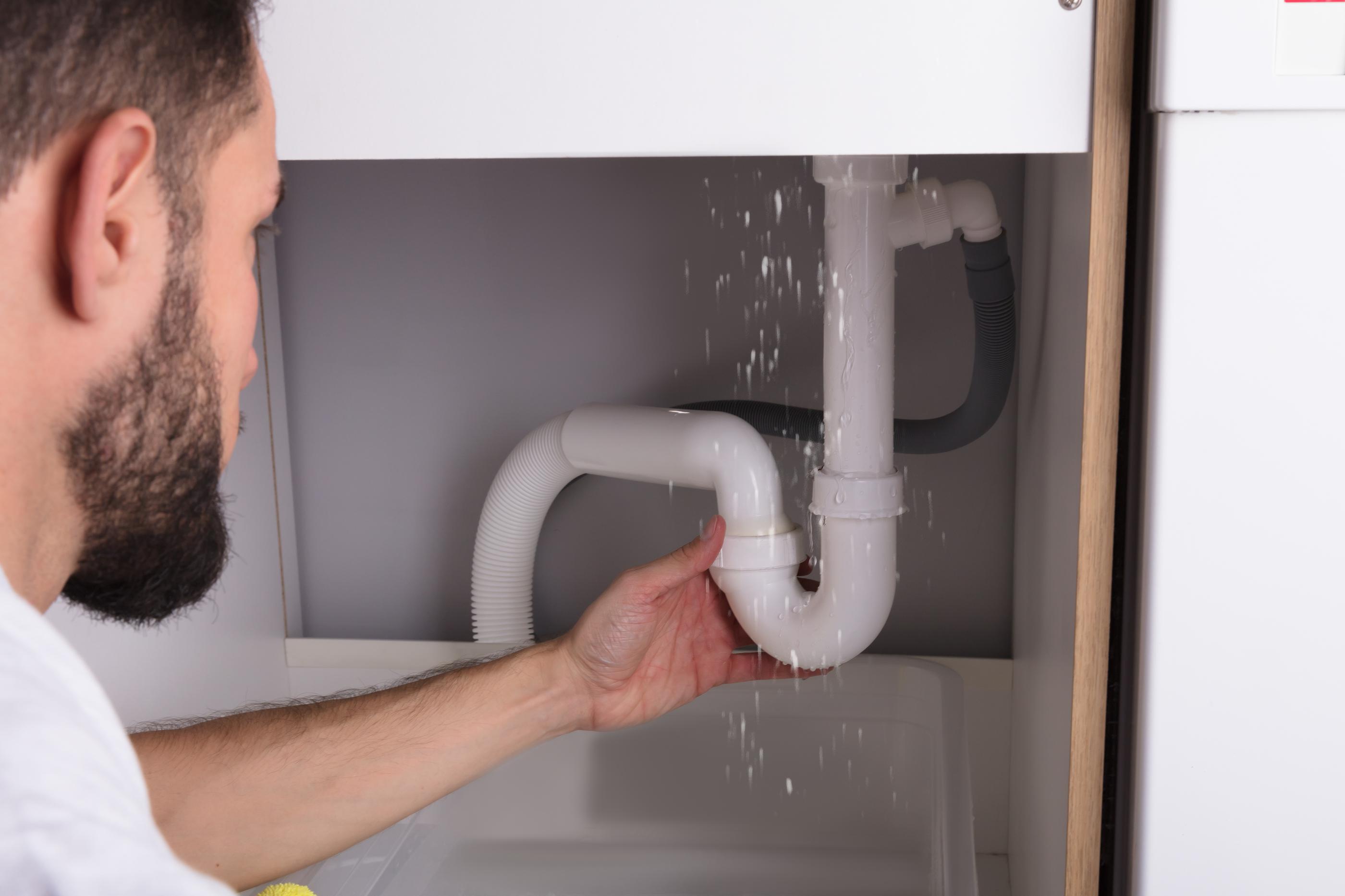
In anticipation of a long Grand Rapids, MI winter, winterizing your home keeps your plumbing safe and functional. From locating leaky pipes to adding insulation around vulnerable lines, we here at Benjamin Franklin Plumbing® can help prevent expensive household damage and plumbing repairs with a few simple tasks.
Checking for Plumbing Leaks
If you find pooling water under a sink or water stains on your ceiling, you have an obvious plumbing leak. Not all leaks are so obvious, however. We can help you spot subtle signs of plumbing problems by checking areas like your basement, crawl space, and around your appliances for moisture, corrosion, or stains. Even pest activity can sometimes point to excess moisture. You can also watch your monthly water bill for unexplained increases. If your usage is rising but your habits haven’t changed, a hidden leak may be the culprit. Similarly, if your water meter shows usage even while all faucets and water-using appliances are off, it’s a strong indicator of a leak. Leaks need to be addressed right away. Procrastinating allows them to worsen, which can promote mold growth and increase the risk of structural damage to your home.
Insulating Your Pipes and Water Heater
Insulating your pipes is one of the simplest ways to protect against frozen lines in Michigan winters. Foam sleeves or wraps can be fitted to exposed plumbing in basements, crawl spaces, and exterior walls to help prevent freezing and reduce heat loss from hot water pipes. Adding an insulation blanket around older water heaters can also reduce standby heat loss and lower your energy bills. It won’t increase the heater’s capacity, but it can help the system run more efficiently and keep water hot for longer between heating cycles. Our plumbers can recommend the right insulation for your system and ensure it’s installed correctly.
Water Heater Maintenance
In addition to insulating your water heater, you should schedule annual maintenance to catch problems early and keep it running efficiently. Draining and flushing the tank removes sediment that can cause corrosion and block heating elements. The recommended temperature setting for most homes is 120 degrees Fahrenheit. This level helps prevent scalding, keeps energy costs reasonable, and reduces the risk of bacterial growth inside the tank. Going higher increases energy usage and safety risks, while going too low can encourage bacteria. We will also check your pressure-relief valve to ensure it functions properly. If you have a gas model, we’ll inspect the pilot light and related heating elements for safe operation.
Addressing Outdoor Faucets and Fixtures
Any water left in outdoor faucets or fixtures can freeze and expand, damaging your plumbing. Each outdoor valve should be shut off, and the faucet opened to let water drain out. Extra protection can come from faucet covers or upgrading to frost-proof models. And don’t forget—hoses should be drained, disconnected, and stored indoors before the first freeze.
Checking Your Sump Pump
The sump pump in your home keeps groundwater from collecting under your foundation. If your pump fails, water can back up into your basement. You can test it by slowly pouring water into the pit until the pump engages. If it doesn’t turn on—or won’t shut off afterward—our team can inspect it. In winter, the biggest sump-related issue is frozen discharge lines outside the home. Ice can block water from exiting, forcing it back into the pit. We can inspect and protect these lines and recommend a battery backup for your pump. That way, even if the power goes out, your sump pump will keep working.
Addressing the Potential for Frozen Pipes
Pipes don’t need outdoor temperatures to dip below 32°F for problems to occur. Lines located in unheated spaces—like crawl spaces, garages, or exterior walls—can freeze when the surrounding air is cold enough. To reduce risk, keep cabinet doors open under sinks, let faucets trickle during extreme cold, and make sure pipes are insulated or protected with heat cable where needed. If you notice bulging pipes or ice forming on the outside, call us immediately. While waiting for help, shut off the water supply to that section of your plumbing to minimize damage.
Educate Yourself During Fall
Before temperatures drop, locate your main shut-off valve and test that it works. Knowing how to isolate your plumbing system quickly can prevent significant damage if a pipe bursts. Exercising these valves once in a while keeps them from sticking; if a valve feels stiff or doesn’t operate correctly, we can service or replace it for you.
Invest in Leak Detectors
Installing leak detectors in high-risk areas—like basements, under sinks, or near water heaters—can give you an early alert if water begins to accumulate. Many modern detectors connect to smartphones, giving you peace of mind even when you’re away from home.
Schedule a Routine Plumbing Inspection
We can visit your home before winter to perform a thorough plumbing inspection. We’ll check for leaks, corrosion, and pipe damage, and measure your water pressure to ensure it stays within a safe range. High water pressure puts stress on pipes, joints, and appliances, which is why we recommend testing it annually. This annual visit is also a great opportunity to complete seasonal tasks like flushing your water heater. If you notice any issues between inspections—such as changes in water pressure, running toilets, odors from drains, or unexplained leaks—don’t wait. Small plumbing issues can waste gallons of water per month and drive up utility costs. Benjamin Franklin Plumbing® is here to help you protect your plumbing system through the toughest Michigan winters. From insulation and inspections to emergency repairs, we provide everything you need to keep your home safe and dry. Contact Benjamin Franklin Plumbing® in Grand Rapids today to schedule your winter prep service.

 Your Privacy Choices
Your Privacy Choices